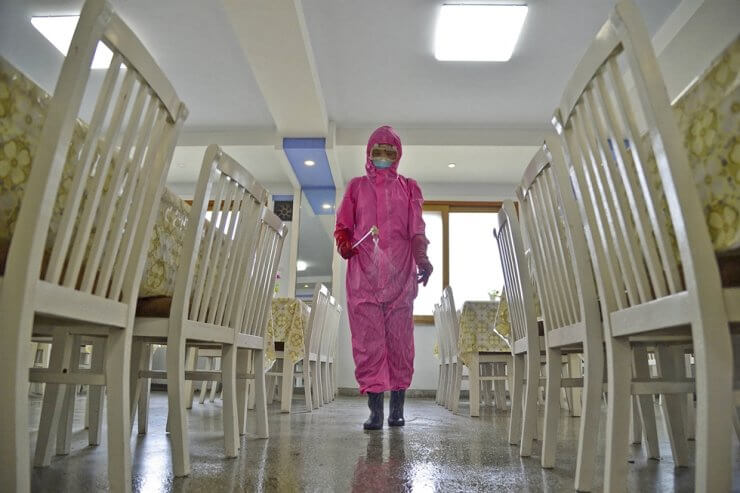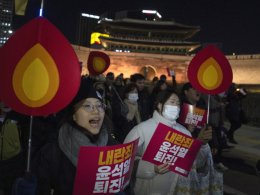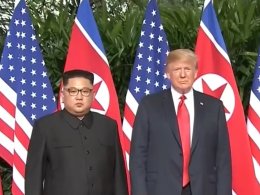North Korea has reportedly asked China and Russia for help amid a surge in COVID-19 cases, which may well become its worst health catastrophe in decades.
After refusing to accept aid offers from South Korea and international organizations, including the World Health Organization (WHO), North Korea appears to have turned to its key allies ― China and Russia ― while keeping its request for help secret.
According to South Korean broadcaster YTN, China is preparing to send doctors, nurses and medical supplies "in large numbers" to North Korea as early as this week. This comes after reports that the North started bringing in emergency supplies from China by using three large Air Koryo cargo planes.
Russia's Ministry of Foreign Affairs also said in a media release Tuesday that Russian Deputy Foreign Minister Igor Morgulov had a meeting with North Korea's Ambassador to Moscow Shin Hong-chul to discuss various issues for cooperation, "including a response to the spread of COVID-19." But the ministry did not reveal details.
Following news of North Korea's "first" coronavirus case last week, Kremlin spokesman Dmitry Peskov said Russia, which developed its own COVID vaccine Sputnik V, would swiftly respond to the North's request for vaccine support.
Asked about possible COVID support plans for the North by The Korea Times Tuesday, press officials at the Chinese and Russian embassies in Seoul refused to respond.
On Wednesday, North Korea reported 232,880 "fever" cases and six additional deaths. In just six days, the total number of such cases surpassed 1.72 million, with 62 deaths and at least 691,170 people remain in quarantine.
At a ruling Workers' Party meeting held the previous day, Kim Jong-un, its leader, lambasted officials for their poor handling of the outbreak, saying their passive attitude and "slackness" are the problem.
"The crisis facing us offered a test board to distinguish between the merits and demerits of all working systems of our state," he said.
Kim then urged the officials to step up virus control measures at workplaces and make more efforts to improve the situation.
According to a Korean Central News Agency report, North Korea has, in a desperate move, mobilized its military to distribute medicine in Pyongyang, its capital.
A failed virus response could mean a health disaster, since most, if not all, North Koreans are unvaccinated and the country lacks food supplies and hospitals. Outside experts, including former Institut Pasteur Korea CEO Hakim Djaballah, told The Korea Times that the real case numbers are almost certainly far higher than what has been reported because of the North's insufficient testing capabilities.
Mike Ryan, the WHO's emergencies director, warned Tuesday that North Korea's situation may give rise to new variants of the coronavirus.
"The WHO has repeatedly said that where you have unchecked transmission, there is always a higher risk of new variants emerging," he said. "Certainly it's worrying if countries ... are not using the tools that are now available."









